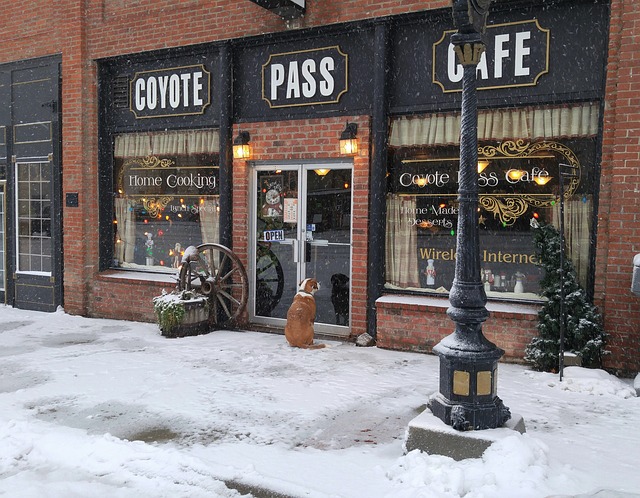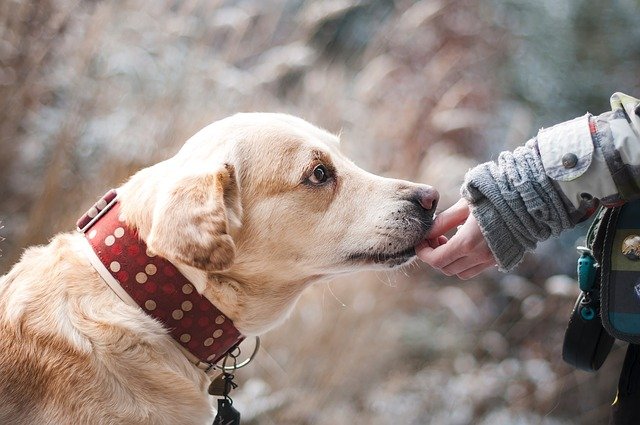2020-11-25
With service dogs or service dogs in training becoming increasingly more popular, the corresponding controversies and complaints are beginning to emerge and affect our lives. In our view, a service dog should be well-trained and well-behaved, and its actions should be controlled by the commands of their handlers instead of behaving nervously or aggressively. And service dogs are permitted to access many public places and business establishments where there is a “no pets” policy, which is a great privilege and respect for these working dogs. However, some customers and shop managers complain that they often encounter “fake service dogs”, led by “disabled handlers”, but they just have to tolerate and not evict them because they are unaware of their rights.
Imagine that you are sitting in a café, enjoying a nice cup of coffee and watching a beautiful sunset—what a wonderful sight! Then a fashion-conscious woman comes in with her boisterous dog without a leash. The dog seems to have infinite energy, it barks and lunges at everyone who passes it and jumps onto the counter, but the handler does not stop it. The manager rushes over and politely says, “Sorry, madam, but we have to ask you to take your dog outside. We don’t allow dogs.” The woman suddenly gets angry and screams, “This is my service dog, he has to go everywhere with me!” “Do you have any proof of your service dog?” asks the manager. “Federal law does not require me to carry papers so I have none with me,” comes the reply. The manager is afraid of getting into trouble if he violates the ADA regulations and federal laws if he continues his verbal fight with the women, so he just keeps quiet and watches the dog while it runs around the café, jumps on people’s laps, sniffs at staff, customers and food, and urinates on its way out.

Does that mean that the laws that protect service dogs are not interested in the well-being of other people or cares for their surroundings?
No. In fact, the Federal Service Dog Law is written to protect people with disabilities who enter public places with their service dogs, but it also covers the rights of the business owners and their customers.
The public accommodations have the right to ask an individual with a disability to remove a service dog if:
• The dog is out of control, and the handler does not take effective action or commands it to stop.
• The dog is not housebroken.
If the dog is asked to leave, the businesses are responsible for providing goods or services to the (now unaccompanied) disabled person. If you are still not sure what rights you have, you can look at the following two lists for more information on what a service dog can or can not do in public.
Service dogs should:
• Always focus on the handler, unless tasks are performed.
• Be gentle and stable without fear or aggression toward anything.
• Remain quietly by their handler’s side when the handler stops instead of wandering or losing focus.
• Sit down or lie down quietly on the floor next to the handler’s chair without moving around excessively.
• Walk nicely on a leash without struggling, pulling, lunging, barking and circling unless the tasks do not require a leash.
• Ignore distractions, like other dogs, tasty food or strange sound. However, if listening to noises is part of the dog’s tasks, it is okay, such as responding to the doorbell ringing if the owner is deaf.
• Respond quickly to the commands, cues, and instructions of the handler. Since the service dog is the assistant for disabled people, it should perform the tasks quickly and accurately, such as helping blind people to cross the street and detect allergens.
• Control his nose at all times. Sniffing people, food, or other interesting things is not only rude, but can also be a health hazard, unless it is about dogs alerting you to allergens or other service dogs that rely on their nose to do their job.
Service dogs should not:
• Urinate or defecate inappropriately.
If a dog is not housebroken, it should not go to public places. A service dog has to accept the potty training in the puppy phase. It should urinate or defecate only at the commands of the handlers unless it has some inevitable accidents caused by an upset belly or other sicknesses.
• Bark, growl, grumble or make other noises.
An exception may be when it whines to alert the handler who has a blood sugar or a sudden panic attack.
• Sniff people or other objects in public as this is rude.
In a store, a well-trained service dog should not use his wet nose to sniff at the staff, customers, tables, counters, products, shelves or anything else unless it is a special such as detecting allergens or other substances that pose a potential risk to their handlers.
• Pick up or steal food or other items from the floor.
In general, service dogs should not interact with distractions when performing a task without obtaining the permission of the handler.
• Engage with other dogs, children and people.
But it can greet a friendly child or dog, depending on the handler’s decision.
• Jump, scratch or show other “out of control” behaviors.
A qualified service dog should not be rude, naughty or give the impression that it is badly-trained.
These dos and don'ts not only ensure the safety of customers but also protect the owner or manager of the business. For the service dog’s handler, it is advisable to train it in obedience before going outside to the public. Make sure the service dog serves you rather than the other way round.
